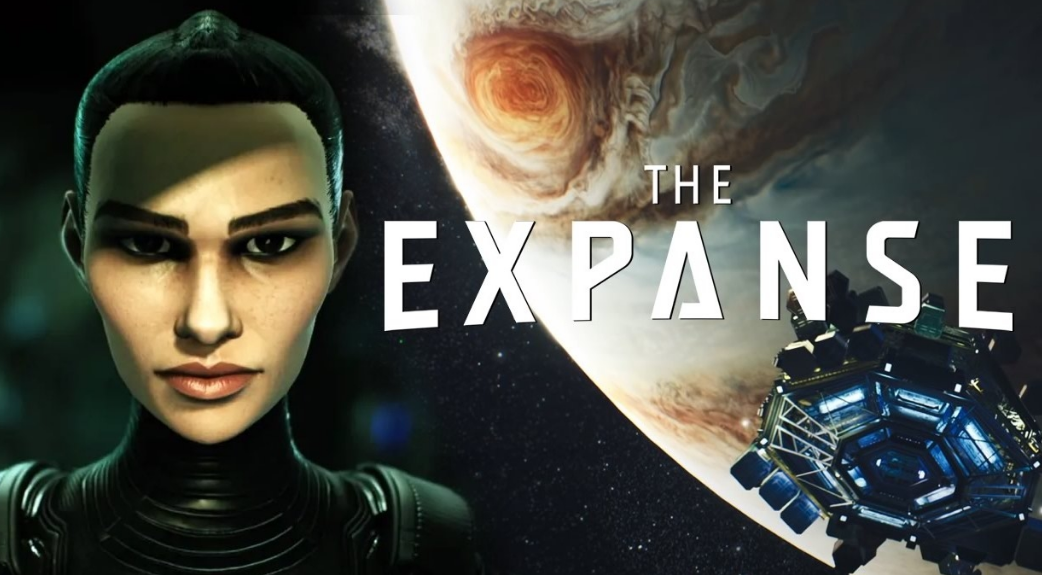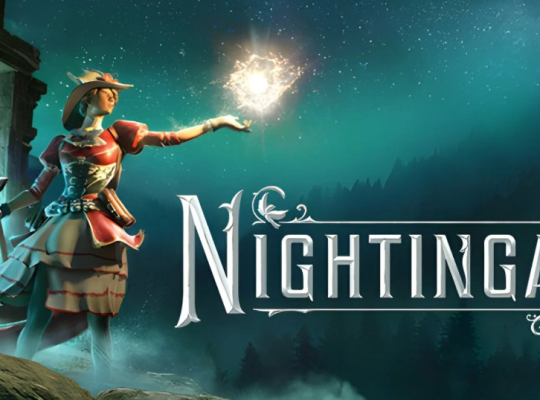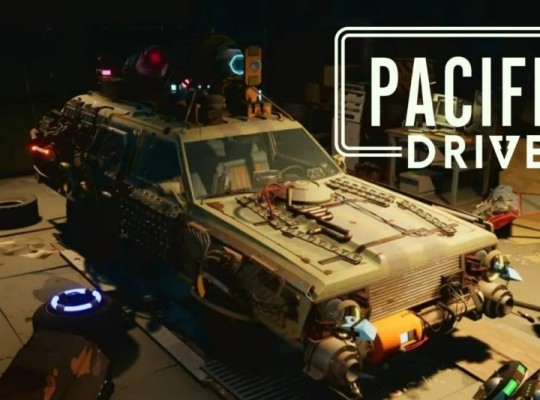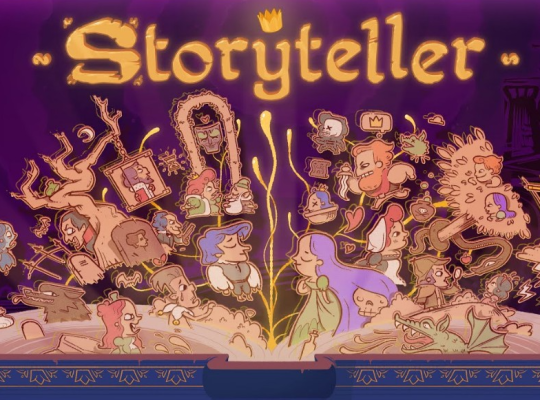The Expanse: A Telltale Series marks a triumphant return for the renowned game developer, co-developed alongside Deck Nine, known for their work on “Life is Strange: True Colors.” Surprisingly, in the gaming landscape of 2023, this episodic adventure not only seamlessly expands upon the universe of The Expanse but also leverages its episodic format to heighten the overall experience.
Having completed all five episodes of the initial release, excluding a forthcoming bonus episode, my initial impression of the game as “exceedingly promising” holds. While the central mystery may not entirely satisfy, the character arcs prove to be captivating, and the developers skillfully deliver a satisfying conclusion. The Expanse: A Telltale Series.
The collaboration between Telltale Games and Deck Nine appears to be a winning formula, reminiscent of the narrative prowess in Life is Strange: True Colors. With a promise of a bonus episode on the horizon, The Expanse: A Telltale Series stands as a testament to the potential of episodic storytelling in the gaming industry, successfully marrying the rich lore of The Expanse with compelling character narratives.
A Belter’s Life: Navigating the Zero-G Realms in The Expanse: A Telltale Series
“The Expanse: A Telltale Series” offers a captivating glimpse into the expansive world of James S.A. Corey’s book series, which has gained further acclaim through its television adaptation. Serving as a prequel to the popular Expanse TV series, the game distinguishes itself by not being a direct adaptation of the books, allowing for a fresh narrative experience. Notably, the game features familiar faces from the show, with Cara Gee reprising her role as Camina Drummer, the central protagonist.
For those unfamiliar with The Expanse universe, the game gracefully introduces players to its intricate lore. Despite the complexity of political factions like the UNN, MCRN, and OPA, as well as the unique Belter language, the game adeptly guides players into this rich sci-fi world without overwhelming them. This accessibility is crucial for both newcomers and avid fans, ensuring an immersive experience that doesn’t alienate any audience.
Regarding gameplay mechanics, The Expanse: A Telltale Series follows the tried-and-true formula established by Telltale Games and Deck Nine’s previous works, such as “Life is Strange: True Colors.” Players navigate environments, engage in conversations with other characters, and propel the plot forward by solving puzzles or completing tasks. While the gameplay structure may feel familiar, the game’s distinctive setting aboard a spaceship in the vastness of space provides a unique backdrop, elevating the overall experience.
The game’s strength lies in its attention to detail and the atmospheric richness derived from The Expanse franchise. Despite the inherent limitations of confined spaceship environments, the game successfully avoids the feeling of constriction, offering expansive and visually engaging levels. This backdrop serves as a canvas for character interactions, with the familiarity of the setting enhancing the player’s connection to the narrative. Notably, having prior exposure to The Expanse TV series contributes to this immersive experience, although the game remains accessible to those who haven’t delved into the books.
One notable departure from its predecessors is the introduction of zero-gravity exploration, a consequence of the game’s space setting. Controlling Camina Drummer in zero-g introduces a unique gameplay dynamic, allowing players to use thrusters for movement and mag boots to traverse walls and ceilings. While this innovation adds a layer of complexity and novelty, it also brings with it a learning curve. The Expanse: A Telltale Series The initial experience may feel awkward, akin to incorporating elements of a rudimentary flight simulator into a visual novel. Navigating through confined spaces with sometimes clunky controls can be initially frustrating, but there’s an argument to be made that this aligns with the disorienting nature of zero-gravity environments.

The learning curve does, however, present an early stumbling block, and the controls may feel less deliberate and polished than desired. Despite this, the gradual improvement in maneuvering with practice adds a layer of realism to the experience. While the initial awkwardness might be intentional to convey the challenges of moving in zero-g, it remains a point where player frustration could potentially detract from the overall immersion.
“The Expanse: A Telltale Series” successfully expands the universe of The Expanse, offering an engaging prequel experience. The game’s adept introduction to the intricate lore, coupled with familiar characters and environments, ensures accessibility for both newcomers and fans. While the zero-gravity exploration adds a fresh dynamic, its initial awkwardness poses a challenge that players must overcome for a more fluid experience. Nevertheless, the game is a testament to Telltale Games’ ability to weave compelling narratives within established universes, delivering a worthy addition to The Expanse franchise.
Crafting Connections through Dialogue: A Deep Dive into The Expanse Series
The true strength of The Expanse series, particularly in its interactive prequel by Telltale and Deck Nine, lies in the potency of dialogue and narrative. While exploration sequences hold their ground, the quick-react action events could have found a better home in the cutting room. The heart of the experience rests in character interactions, where the weight of the narrative truly comes to life. The Expanse: A Telltale Series The game excels in unveiling the connections between Drummer and her crew, providing a captivating narrative thread that, while perhaps unfolding a touch abruptly, allows players to fill in the gaps within the confines of the limited one-hour episodes.
As a somewhat ambivalent observer of The Expanse TV show, I found the game echoing both the strengths and weaknesses of its source material. The dedication to scientific accuracy is commendable, yet the fictional elements often left me detached, primarily due to loose world-building and characters I struggled to embrace. The Expanse: A Telltale Series The interactive prequel mirrors this ambivalence, eliciting mixed emotions throughout gameplay. However, a notable improvement lies in the softened portrayal of the protagonist, enhancing the player’s connection to the lead character.
Telltale and Deck Nine elevate the gameplay quotient, a welcomed departure from Telltale’s recent narrative-driven adventures. While the enhancements may be primarily superficial, they effectively mask the thin and familiar premise. Though newcomers to The Expanse universe may face moments of confusion, the overall experience proves engaging, offering existing fans an opportunity to delve once more into the realms of Earthers, Martians, and Belters. The game succeeds in introducing crucial decisions that not only enrich the narrative but also cater to the eager anticipation of fans seeking another immersive venture into The Expanse universe.
A DEVELOPING STORY: Navigating Choices and Consequences in The Expanse: A Telltale Series
The visual aesthetics of The Expanse: A Telltale Series might not claim the title of the best-looking game in the market, with occasional roughness evident in its animations.The Expanse: A Telltale Series In a comical instance, a tense confrontation took an unexpected turn when a character’s threatening demeanor was undermined by a glitch causing his goatee to twitch amusingly. Such visual hiccups highlight the game’s imperfections, where even the most menacing characters can be inadvertently rendered less intimidating by polygonal quirks.
Avoiding spoilers, the central narrative thrust of the game revolves around the crew of the Artemis, a salvage vessel, led by the player-controlled character Drummer. Swiftly immersing players in a plot unfolding in the vastness of space, Drummer assumes a position of authority, tasked with making crucial decisions that shape the course of the story. This aligns seamlessly with the established Telltale formula, where players, as narrative decision-makers, hold sway over the direction of the plot.
The game excels in intertwining the interactive decision-making mechanic with the narrative demands of its universe. The drummer’s role as a high-ranking figure within the ship naturally positions the player to guide the crew through challenging scenarios. The Expanse: A Telltale Series Early on, a decision arises that forces players to weigh the permanence of bodily injury against potential gains for the crew. The impact of such choices resonates, creating a sense of meaningful agency within the unfolding story.
As the narrative progresses, the repercussions of decisions become apparent, with some choices carrying more weight than others. The game adeptly mirrors the ethos of The Expanse, where seemingly insignificant choices can cascade into major consequences. Completing all five episodes reinforces the episodic structure, mirroring the pacing and tension it precedes in the TV show.
Despite occasional gameplay stumbling blocks and narrative awkwardness, The Expanse: A Telltale Series succeeds in delivering a compelling and emotionally resonant experience. The game captures the essence of the TV show, and for fans of The Expanse, the faithful representation is high praise. The Expanse: A Telltale Series The emotional impact is palpable, from the familiar theme song to Cara Gee’s authentic portrayal of Belter language, creating a nostalgic connection for those who lament the conclusion of the TV series on Amazon’s Prime Video.
In this way, The Expanse: A Telltale Series stands as a triumph, demonstrating that occasional imperfections do not overshadow the emotional resonance and surprising moments that elevate the overall experience. While some choices may seem inconsequential, the game reinforces the notion that it is the cumulative impact that truly defines the journey. The Expanse: A Telltale Series.
The narrative twists and turns, coupled with the player’s agency, contribute to a satisfying storytelling experience that mirrors the nuanced nature of The Expanse universe. In the end, the game successfully captures the essence of the source material, leaving players with a sense of immersion, nostalgia, and a desire for more tales from the vast expanse of space.
Building Narratives Beyond “Walking Simulators”: The Evolution of Gameplay in The Expanse
The Expanse, a departure from Telltale’s traditional “walking simulator” style, introduces a refreshing layer of freedom for players. Unlike the constrained movement often associated with narrative-driven games, The Expanse allows players to navigate more freely, even disabling gravity boots in Zero-G to float—a notable advancement in Telltale’s gameplay approach.
In addition to the enhanced freedom of movement, the game introduces various mini-games throughout its episodes. These diversions range from cutting through hull sections to uncover items, evading lasers deployed by drones, to strategically routing power between junction boxes. While these gameplay elements may not revolutionize the overall gaming experience, they serve as engaging additions that inject dynamism into the narrative-focused gameplay.
However, the introduction of these new gameplay elements brings about some growing pains. Collectibles, such as data logs and Salvage, are scattered across episodes. While data logs contribute to additional story content, the purpose of collecting Salvage remains unclear. In the initial episode, Drummer suggests the potential usefulness of Salvage, but the narrative fails to capitalize on this setup. Unlike other collectibles with tangible in-game purposes, Salvage seems to exist in the game world merely for its own sake.
Despite these minor hiccups, The Expanse represents a step forward for Telltale in diversifying its gameplay mechanics. The inclusion of interactive elements and mini-games adds layers to the storytelling experience, offering players a more dynamic and engaging journey through the expansive universe of The Expanse.

Do Choices Truly Matter? Deciphering Impact in The Expanse: A Telltale Series
The allure of decision-making is a cornerstone in narrative titles, particularly in the Telltale gaming universe. In The Expanse: A Telltale Series, the weight of choices becomes a focal point, prompting players to question the true significance of their decisions. A pivotal moment arises at the end of the first episode, forcing players to choose between life and death for a character. The Expanse: A Telltale Series However, a closer examination reveals that, regardless of the choice made, the character disappears from the narrative, raising the crucial question: did the choice truly matter?
In classic Telltale fashion, the game provides a glimpse into the collective decisions of the gaming community at the end of each episode. Intrigued by the potential outcomes of a decision in the third episode, an experimental playthrough was conducted. The result? A few additional lines of dialogue, but the overall trajectory of the episode remained unchanged. This underscores a recurring challenge in narrative-driven games—choices often lead to diverging paths that ultimately reconverge, leaving the illusion of impact rather than substantial change.
Navigating the Truth: A Slightly Above-Average Telltale Game
The Expanse: A Telltale Series emerges as a commendable addition to the Telltale repertoire, slightly elevating the gameplay experience. Its visual appeal surpasses previous titles, and the incorporation of additional gameplay elements signals a positive evolution. However, a critical examination of the impact of choices raises questions about the narrative’s true responsiveness to player decisions.
The memorable quote, “Truth is truth. How you deal with it is up to you,” encapsulates the essence of the game’s narrative philosophy. While choices may not drastically alter the course of events, they offer players a personalized journey through The Expanse universe. The game’s strength lies in its ability to enhance existing knowledge of The Expanse rather than revolutionize it.
A Telltale Experience for Expanse Enthusiasts
For avid fans of The Expanse seeking canonical content, The Expanse: A Telltale Series holds promise. Its narrative, serving as a prequel, contributes to the expansive lore of the universe. However, the story’s appeal is inherently tied to existing familiarity with the show, with moments of enjoyment often derived from recognizing references or delving deeper into Belter’s language.
On the flip side, for those unacquainted with The Expanse, the game presents a more challenging recommendation. Despite its standalone experience, the narrative lacks the same resonance for newcomers, with enjoyment contingent on pre-existing immersion in the universe. The game’s success in creating enjoyable moments hinges on the player’s ability to relate to elements from the show.
Final Verdict: Navigating The Expanse’s Ambiguous Terrain
Despite my reservations and musings on missed opportunities, The Expanse: A Telltale Series managed to capture my enjoyment, especially during the initial playthrough. Acknowledging the familiar tropes of storytelling and gameplay limitations, it’s undeniable that the audiovisual production stands strong. The Expanse: A Telltale Series The narrative and gameplay may seem somewhat shallow, and the illusion of player choice occasionally falls short due to constraints. However, the game redeems itself through the compelling portrayal of Camina Drummer, an empathetic character who adds depth to the experience.
The true allure lies in the potential for impactful moments driven by crucial decisions. While the narrative may tread well-trodden paths, the consequences of certain choices lead to genuinely dramatic sequences with resonating repercussions. The Expanse: A Telltale Series Despite the rough edges in the mechanics hindering a seamless experience, there’s an undeniable charm to floating weightlessly in the vastness of outer space.
Looking beyond the criticisms, The Expanse marks a positive step for Telltale, hinting at a return to games with more immersive gameplay elements. The game serves as a promising introduction to this renewed direction. Camina Drummer’s evolution into a more compassionate character, combined with the potential for impactful decisions, offers a glimpse into the narrative depth that future Telltale games could explore.
The Expanse: A Telltale Series may not revolutionize the gaming landscape, but it provides a satisfying experience within the well-established universe. The hope lingers for Telltale to continue this trajectory, injecting more gaming elements into their titles. The Expanse: A Telltale Series The Expanse serves as a compelling first step in this direction, leaving the door open for future ventures into the boundless stories that the franchise can offer.
Read More – Payday 3 Review – Gathering the Old Gang for a Sneaky Heist

















